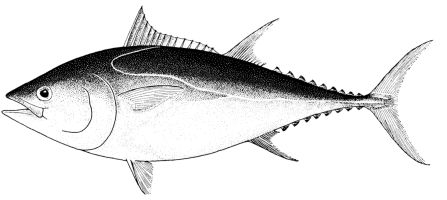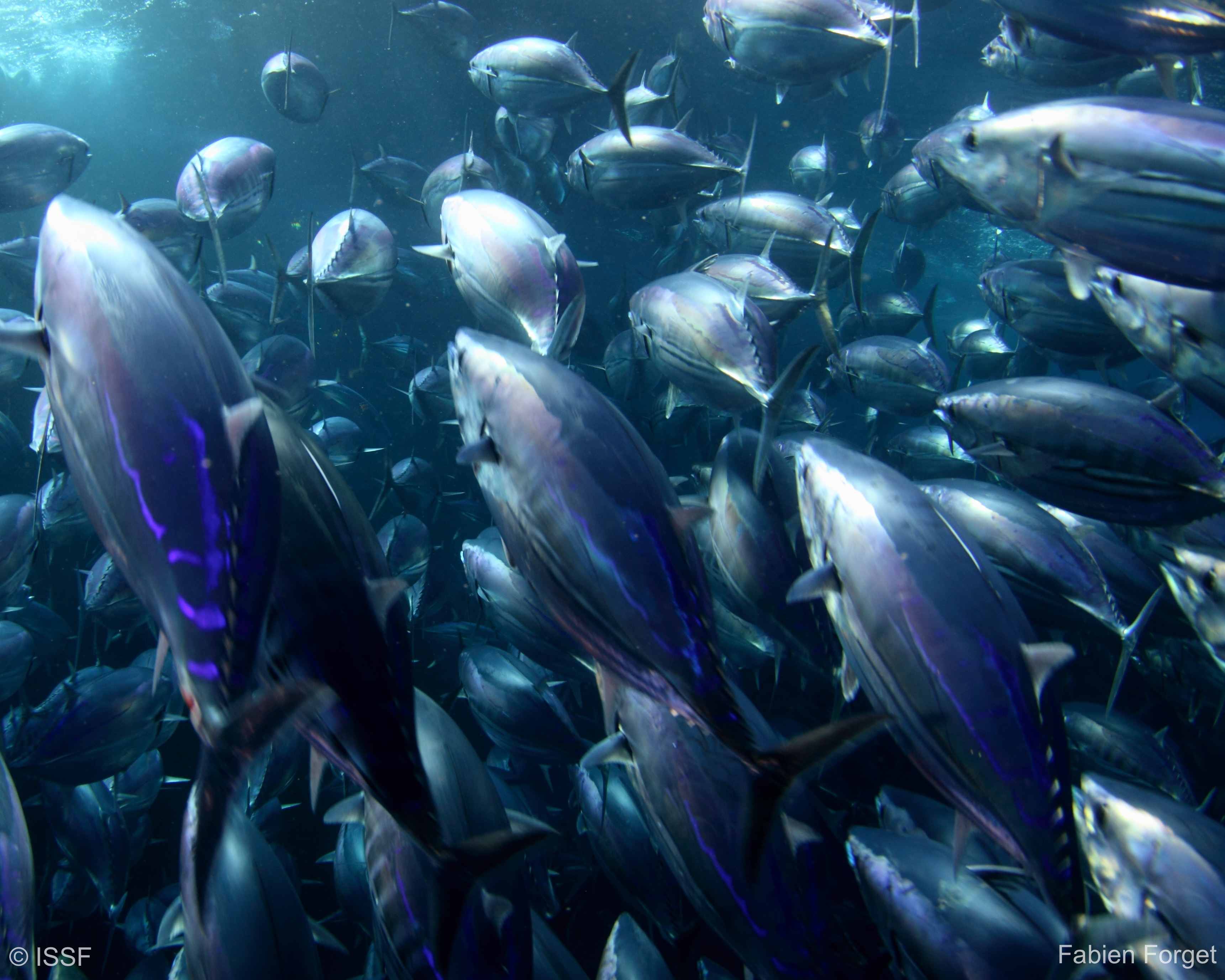Atlantic Bluefin
Atlantic bluefin (Thunnus thynnus) is one of three bluefin tuna species, together with Pacific bluefin and Southern bluefin.

In: FAO Species Catalogue, Vol. 2. Scombrids of the World (1983). Courtesy of Fisheries and Aquaculture Department/Food and Agriculture Organization of the United Nations.
For many years, bluefin tunas around the Northern Hemisphere were considered to be the same, or one subspecies. They were only recently divided as a result of the scientific agreement that Atlantic bluefin and Pacific bluefin (Thunnus orientalis) are separate species.
The Atlantic bluefin is the largest of the tuna species. It can reach 3 meters in length (or nearly 10 feet), although the common size ranges between 80 and 200 cm. Two stocks are assessed and considered in development of fishery management by the International Commission for the Conservation of Atlantic Tunas (ICCAT): Western Atlantic Ocean, and Eastern and Mediterranean stocks.
The Atlantic bluefin tolerates a wide range of temperatures. It lives in subtropical and temperate waters of the Atlantic Ocean and the Mediterranean and Black seas, although sightings in the Black Sea are now rare. They are highly migratory and tend to form schools by size. Sometimes bluefin can be seen together with other tuna species like albacore, yellowfin, bigeye, and skipjack.
Species Characteristics
| Size (cm) | Weight (kg) | Age (yrs) | |
|---|---|---|---|
| Common | 80–200 | 145–300 | 25+ |
| Maximum | 458 | 679 | 35 |
| Maturity | 110–190 | 30–120 | 4–14 |
| Generation Length |
17 |
Geographic Limits
- In the eastern Atlantic, this species is present from Norway to the Canary Islands, including the Mediterranean and the southern part of the Black Sea, between 80–70°N and 20–10°N.
- In the western Atlantic, Thunnus thynnus ranges from Canada to Brazil, including the Gulf of Mexico and the Caribbean Sea, between 60–50°N and the Equator.
- 80°N to 60°S, 100°W to 20°E
Species Management
The following Atlantic bluefin stocks are managed by the International Commission for the Conservation of Atlantic Tunas (ICCAT) RFMO:
- Eastern Atlantic and Mediterranean bluefin
- Western Atlantic bluefin
Bluefin Tuna Stock Status
Our Status of the Stocks report summarizes the status of bluefin tuna worldwide according to the most recent scientific assessments.
It also reviews the management measures for bluefin that Regional Fisheries Management Organizations (RFMOs) have adopted.
RELATED RESOURCES

Interactive Stock Status and Catch Tool
Use our interactive data-visualization tool to create and then download or share graphics on tuna stock status.
You can visualize data on 23 commercial tuna stocks (by species and ocean area) share of total catch, stock health trends, and catch trends over time.

ISSF 2025-08: An Evaluation of the Sustainability of Global Tuna Stocks Relative to Marine Stewardship Council Criteria
The Marine Stewardship Council scoring system was used to evaluate 23 stocks of tropical and temperate tunas, including the bluefin tuna stocks (added in 2021), throughout the world.
Bluefin Stock Health & Catch Trends
Use our “Interactive Stock Status and Catch Tool” to visualize, download, and share data about bluefin tuna:
- Stock health since 2011
- Current catch by fishing method
- Catch trends by fishing method since 1950
Tuna Conservation
Our research and advocacy work aims to ensure, on a global level, that tuna resources are well managed and protected from overfishing.
Tuna Stock Evaluations
An ISSF report uses the Marine Stewardship Council (MSC) scoring system to evaluate both the health and RFMO management of 23 tuna stocks worldwide, including bluefin.


